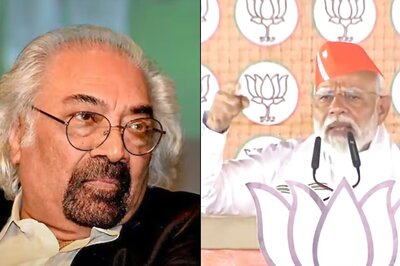
views
New Delhi: In June, New Delhi’s premier hospital, the All India Institute of Medical Sciences (AIIMS), presented an odd sight — doctors sporting head bandages and wearing helmets.
A little more than two months later, the government has made public its intention of doing something about the menace the doctors were trying to highlight. The Union Health Ministry has made public a draft legislation and opened it up to discussions and suggestions.
The proposed legislation intends to make stricter the punishment against those who indulge in violence and hopes that this would serve as a deterrent to family members of patients assaulting medical staff and doctors on duty.
While the problem is not new, matters came to a head in June when a junior doctor, Paribaha Mukhopadhyay, was beaten up and grievously injured in Kolkata’s NRS Hospital. But 73-year-old Dr Deben Dutta was not as lucky. He succumbed to his injuries after workers of the Teok Tea Garden in Assam brutally assaulted him, leading to his death. Dutta was not in the hospital when a worker from the tea gardens was brought in. The patient, 33-year-old Somra Majhi, died even before the doctor could treat her, after which her co-workers lynched the doctor in retaliation.
The Supreme Court on Monday admitted a public interest litigation to protect medical professionals from assault. The petitioners, the Association of Healthcare Providers, have sought a new law to protect doctors and other medical professionals.
The government on Tuesday made its draft proposal public. The draft bill is called the Healthcare Service Personnel and Clinical Establishments (Prohibition of Violence and Damage to Property) Bill, 2019. One of the most prominent provisions of the bill is that an assault on a doctor on duty will attract a punishment of 10 years of imprisonment or a fine of Rs 10 lakh. This provision will apply if the healthcare professional is grievously injured, as defined in Section 320 of the Indian Penal Code (IPC).
Besides, offences against medical professionals will be cognisable and non-bailable in nature. The investigator in such cases will be an officer not less than a rank of a deputy superintendent of police. The draft proposal also has provisions for monetary compensation for damage of property or documents in a clinical establishment.
The Bill aims to give protection to medical staff — this includes a registered medical practitioner, a practitioner registered to practise any other system of medicine, a registered dentist, nurse, midwife, auxiliary nurse-midwife, and health visitor as also a medical or nursing student.
The Bill also aims to provide protection to para-medical workers, diagnostic service providers, ambulance drivers and helpers. The draft proposal is open to changes, which can be made within 30 days from the date of the notice. Most medical associations that News18 spoke to indicated they are drafting a series of changes.
Initial reactions were that much more needs to be done vis-à-vis enhancing security arrangements in hospitals, including increasing security presence and the installation of CCTV cameras. Doctors have also voiced concerns about how this needs to be seen from the point of view of patients who are the frustrated lot when the hospital infrastructure and services are not up to the mark.
Many suggestions include improving infrastructure to reduce the stress of the already anxious family members of patients. The feedback also includes reducing the number of attendants for a patient, which would reduce overcrowding in hospitals.
A recent report, ‘Healthcare in India and Violence against Doctors: The Missing Links’, conducted by a senior AIIMS professor and published in the Indian Journal of Nephrology has a few valuable suggestions on how to tackle problems of overcrowding in hospitals and the need to increase the number of emergency beds. It also suggests improving the communication skills of resident doctors that the study finds often become the trigger of violence.
While it remains to be seen what suggestions and changes are incorporated by the Health Ministry to the draft proposal, the pressure is clearly on the government to ensure that the incident in Assam is not repeated. The World Medical Association has also written an open letter to Prime Minister Narendra Modi and Health Minister Harsh Vardhan condemning the violence against doctors and also asking for a robust urgent response to address the root causes, including stronger regulation.



















Comments
0 comment